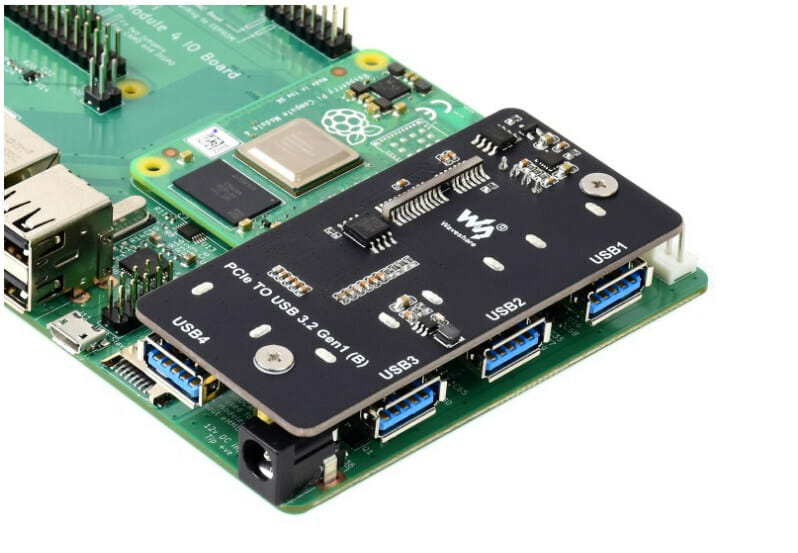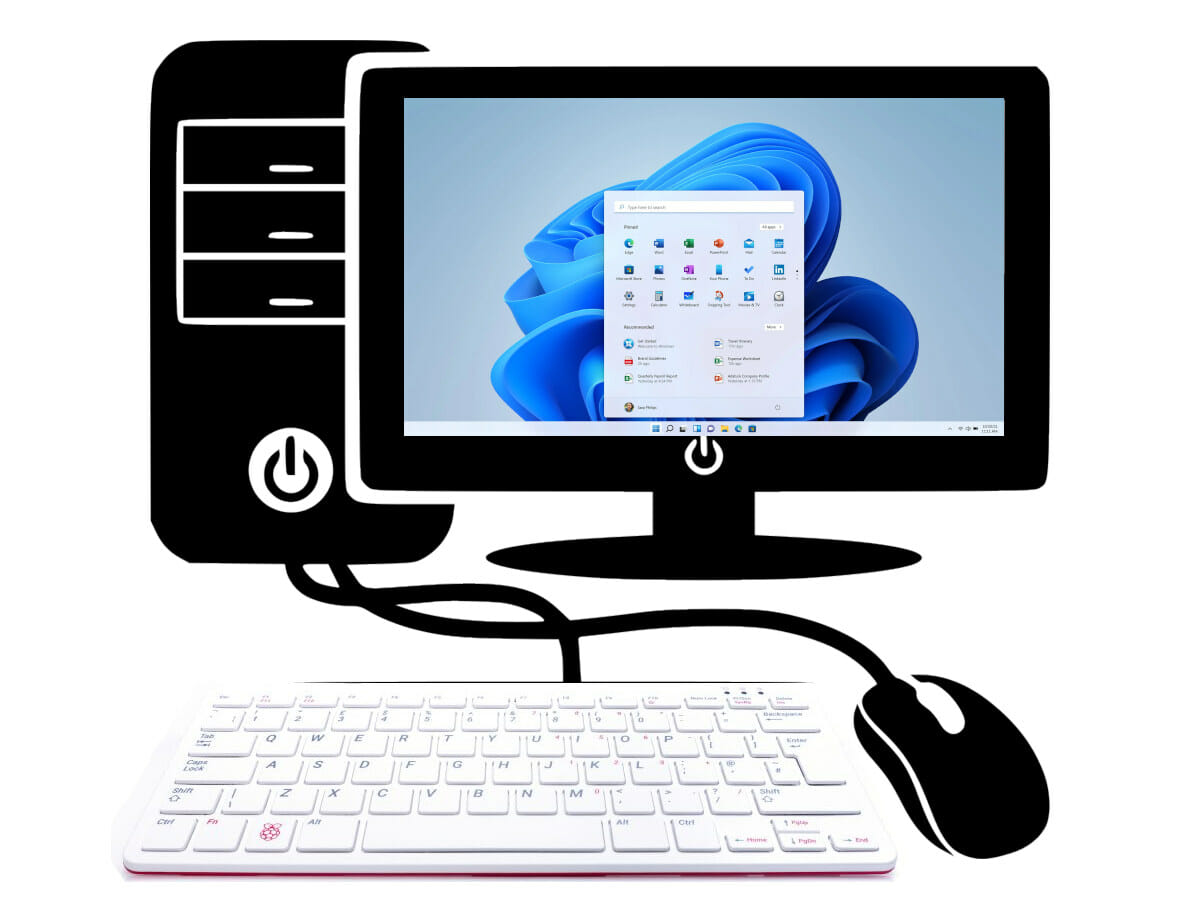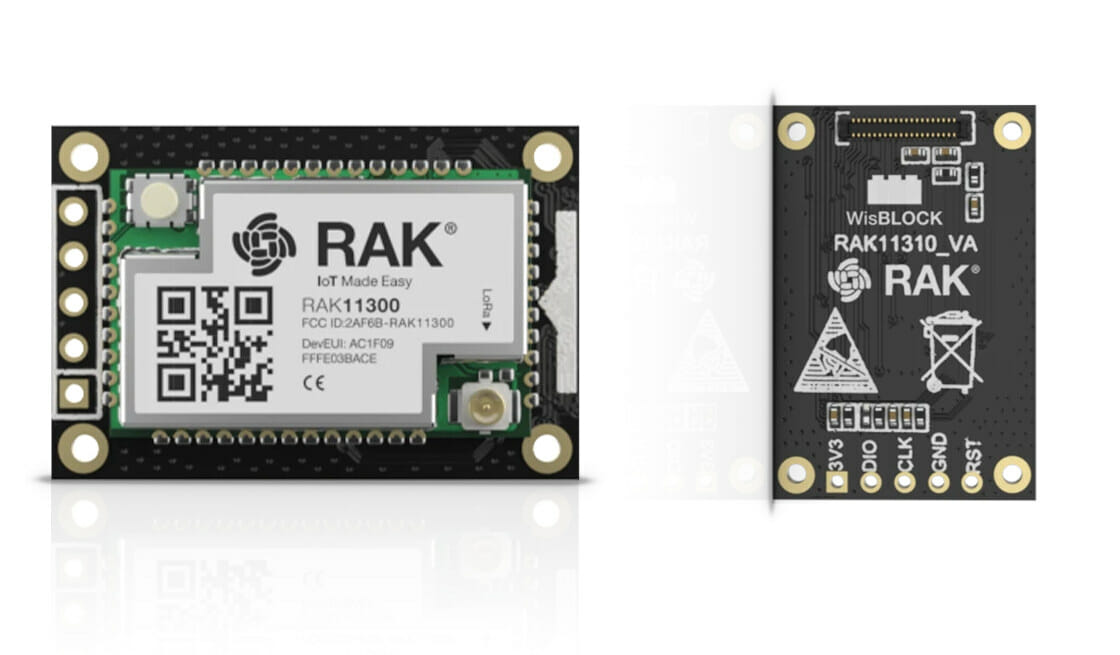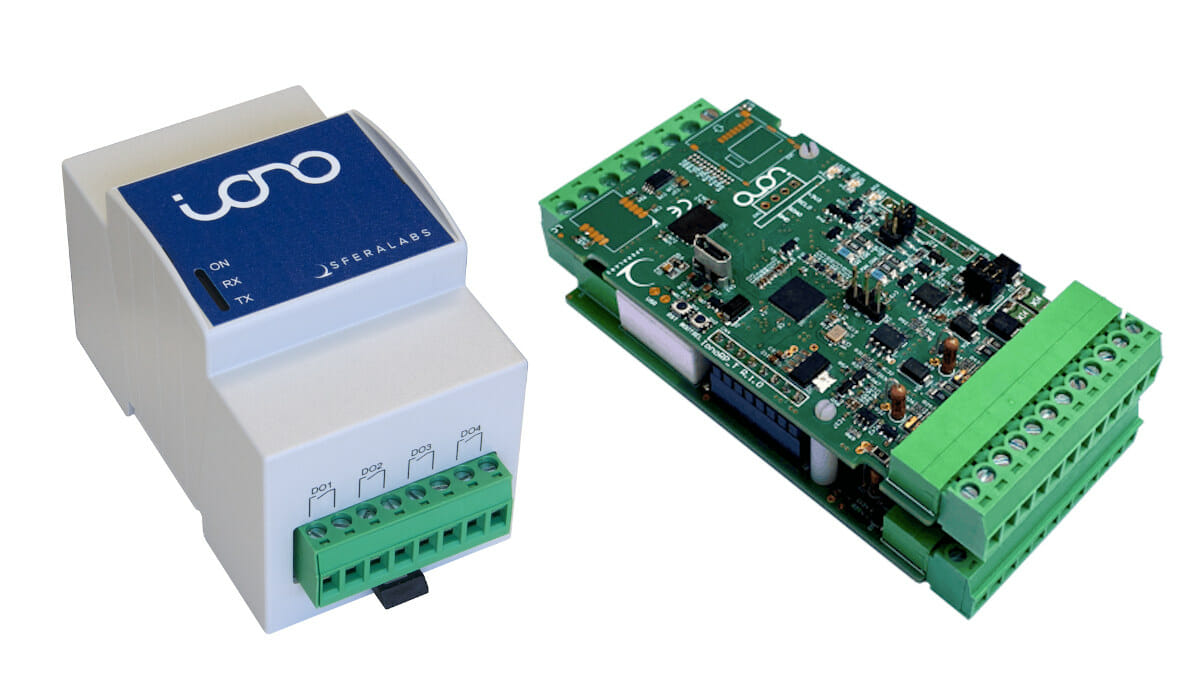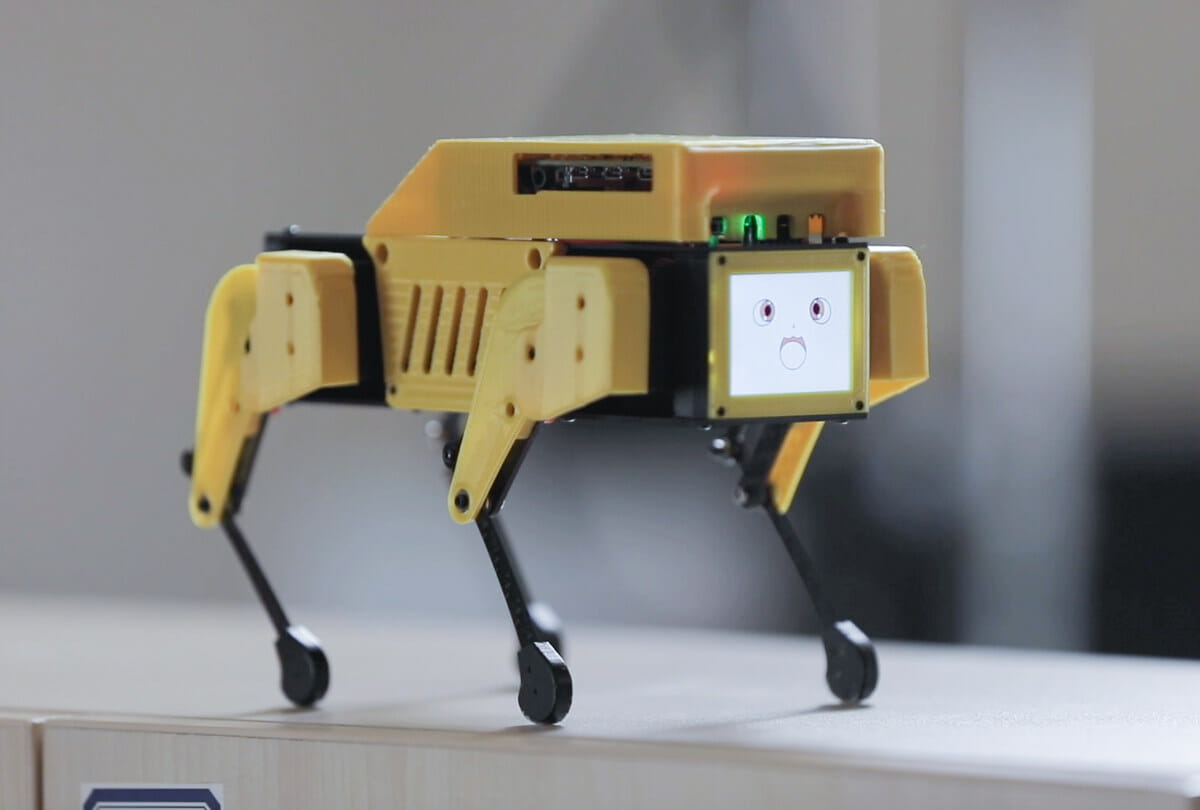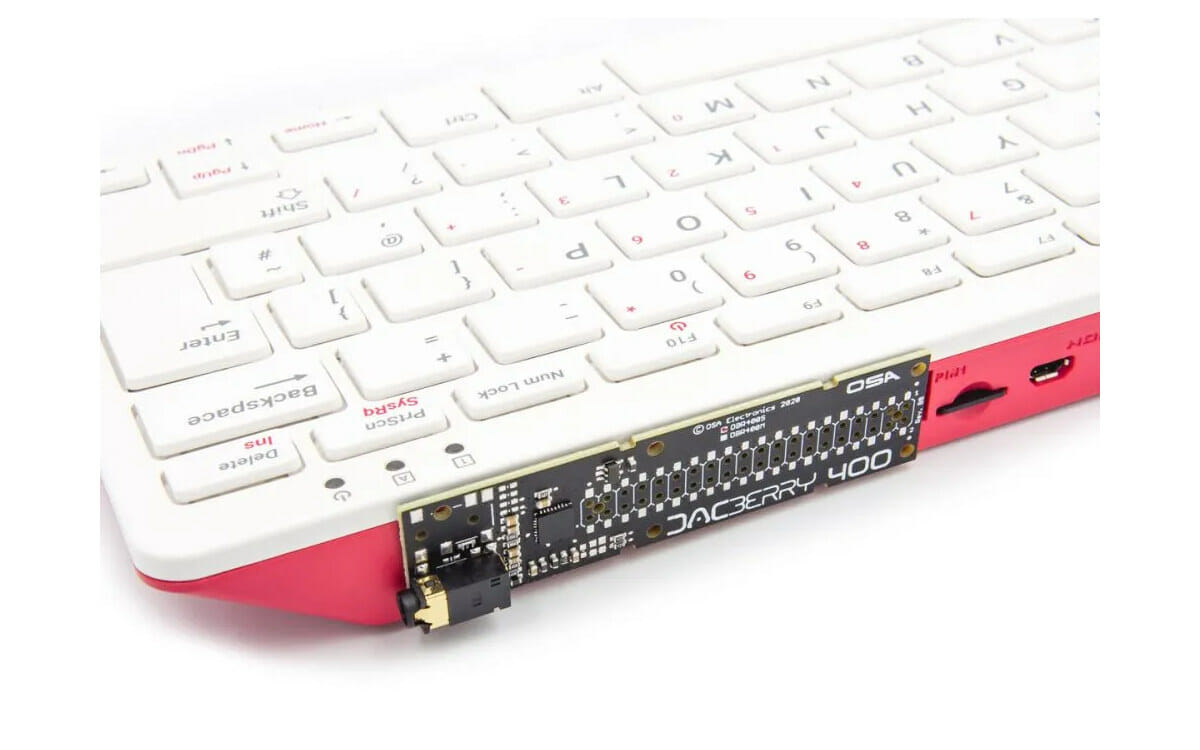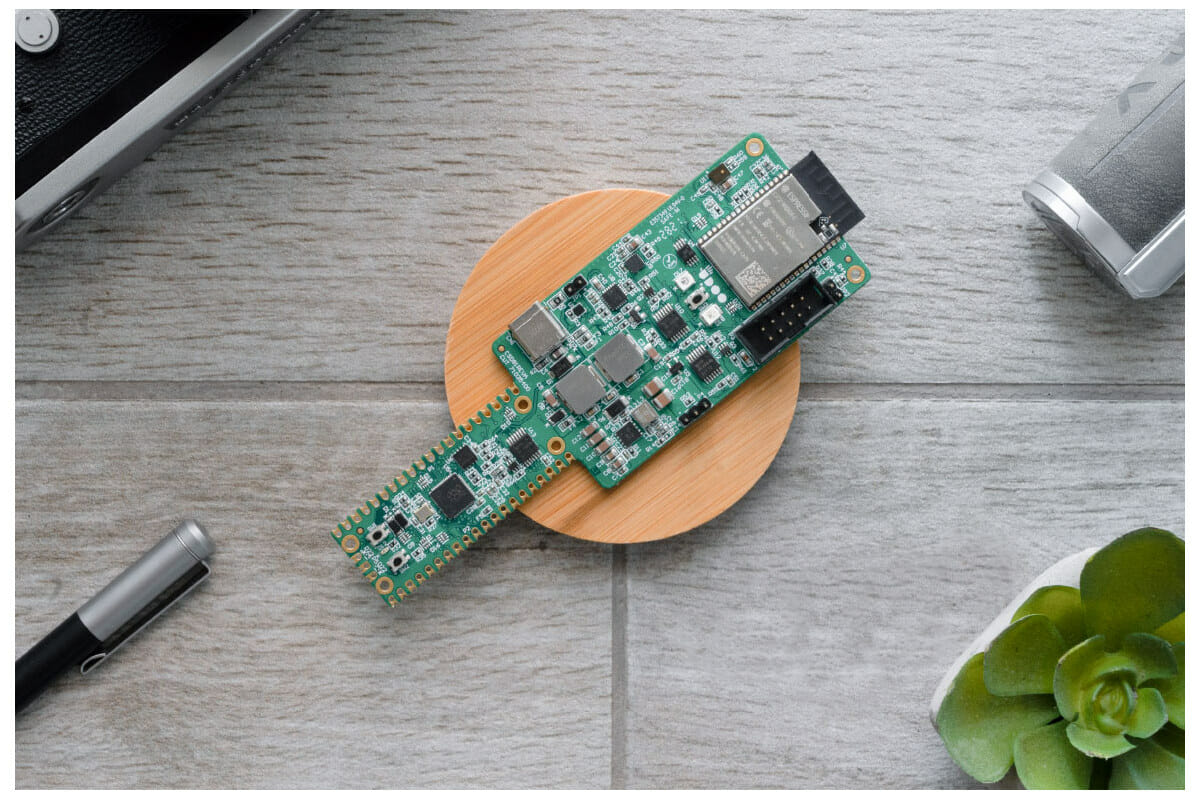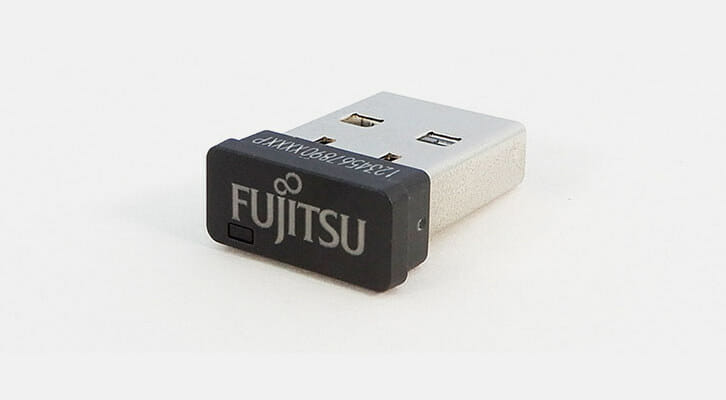Waveshare has introduced a non-standard PCIe adapter that adds four USB 3.2 ports to the Raspberry Pi Compute Module 4 IO carrier board in a way that does not take too much height. It’s non-standard as it can not be inserted directly into a typical computer PCIe slot, and Waveshare recommends a PCIe extension cable to connect it to a motherboard. Having said that It looks much better on the IO board. Waveshare USB PCIe adapter features: PCIe host interface 4x USB 3.2 Gen1 ports, USB 3.0 / 2.0 / 1.1 compatible Onboard VIA Labs VL805 chip as found on Raspberry Pi 4 SBC Power supply – 12V via PCIe connector or 4-pin header Designed for Raspberry Pi Compute Module 4 IO Board Dimensions – 82×39 mm Since it’s basically using the same design as Raspberry Pi 4 providing USB ports through the same VL805 PCIe chip, there’s no […]
Using Raspberry Pi 400 keyboard PC as a USB keyboard for your PC
Let’s try not to get confused, but you can now use Raspberry Pi 400 keyboard PC as a standard USB keyboard, optionally with a mouse attached to it, for your computer, or twisted minds may even connect it to a Raspberry Pi SBC… “But why?” you may ask. Because we can. That’s now possible thanks to work from Phil Howard (Gadgetoid), software lead of Pimoroni, and his Pi400kb project which implements a raw HID keyboard forwarder that turns the Raspberry Pi 400 into a standard USB keyboard. All you need to do is to find a USB-C to USB-A cable to connect the Raspberry Pi 400 to one of the USB ports on your computer, change some Raspberry Pi OS configuration, and install and run pi400kb. Add dtoverlay=dwc2 to /boot/config.txt in order to use the dwc2 USB device/gadget mode, and reboot your Pi 400 Load the libcomposite kernel module, get […]
RAK introduces Raspberry Pi RP2040 based LoRaWAN core, more Wisblock modules
RAKwireless has just launched the RAK11310 WisBlock LPWAN Module with Raspberry Pi RP2040 MCU and LoRaWAN connectivity, as announced after launching 14 new WisBlock modules for IoT prototyping last July. The RAK11310 module was introduced as part of the “Just Track It RAK Autumn Launch 2021” event together with the smallest WisBlock Base Board so far, as well as 11 new Wisblock modules which bring the total to 47 modules. RAK11310 – Raspberry Pi RP2040, LoRaWAN connectivity RAK11310 specifications: RAK11300 WisDuo LPWAN Module MCU – Raspberry Pi RP2040 dual-core Cortex-M0+ microcontroller @ 133MHz with 246 kB RAM LoRa connectivity SX1262 LoRa transceiver Worldwide frequency coverage RAK11310L – EU433, CN470 RAK11310 – EU868, US915, AU915, KR920, AS923, IN865, RU865 LoRaWAN 1.0.2 protocol stack (supports Class A & C) I/O ports – UART, I2C, GPIO, USB through a “Wisconnector” Debugging – Serial Wire Debug (SWD) interface Supply Voltage – 2.0 V ~ […]
Iono RP – An industrial PLC with a Raspberry Pi RP2040 MCU
Raspberry Pi RP2040 MCU has been used in many boards, but I think I had seen the dual-core MCU in a PLC, or even any industrial products just yet. Sfera Labs Iono RP is a compact I/O module (PLC) with a Raspberry Pi RP2040 microcontroller that’s programmable in C/C++ and MicroPython, or even the Arduino IDE. The DIN-Rail mountable, RP2040 based industrial PLC offers digital and analog input and output lines, power relays, and an RS-485 interface, supports power input from 12V-24V with all signals accessible through terminal blocks. Sfera Labs can also provide some optional options such as an RTC or an earthquake sensor module. Iono RP PLC specifications: MCU – Raspberry Pi RP2040 dual-core Arm Cortex-M0+ @ 133MHz with 264kB on-chip SRAM Storage – 16MB SPI flash, optional microSD card slot Communication interface – standard RS-485 interface with electrostatic discharge protection Inputs/Outputs via terminal blocks 4x power relay […]
Mini Pupper – Raspberry Pi 4-based robot dog teaches ROS, SLAM, navigation, computer vision (Crowdfunding)
Mini Pupper is a Raspberry Pi 4 powered robot dog inspired by Stanford Pupper open-source quadruped robot, and designed in “light collaboration” with Nathan Kau, the original creator of Stanford Pupper. Just like the original design, MangDang’s Mini Pupper is open-source, based on Ubuntu and ROS (Robot Operating System), and designed for robotics education in schools, homeschool families, enthusiasts and others, with notably students being able to learn out to use ROS, SLAM, navigation, and OpenCV computer vision through online courses that will come with the robot. Mini Pupper key features and specifications: SBC – Raspberry Pi 4 Model B with 2GB RAM Storage – 2GB microSD card Display – 320×240 LCD for facial animation Camera – Support for OpenCV AI Kit Lite 12 DOF via MangDang’s custom servos Optional Lidar module for SLAM (Simultaneous localization and mapping) Battery – 800 mAh Charger – Input voltage – 100-240V AC 50/60Hz, […]
Add an audio jack to Raspberry Pi 400 with the DACBerry 400
The Raspberry Pi 400 is a keyboard PC with most of the features of Raspberry Pi 4 SBC, with one of the exceptions being the lack of AV port. But you can now add a 3.5mm audio jack to the Raspberry Pi 400 through the DACBerry 400 S expansion board that connects to the 40-pin GPIO header. It’s a neater way than using a cheap USB audio dongle with microphone and headphone jacks, as it takes less space, and does not occupy any of the USB ports from the Raspberry Pi 400, and it does not prevent you from using the GPIO header. It’s also better suited for headphones with both microphone input and analog stereo audio output into a single jack, and probably comes with better audio quality than the low-cost USB dongles. DACBerry 400 S (DBR400S) specifications: Gold-plated 3.5mm headset/headphone jack (mic in – stereo out) DAC SNR […]
UDOO KEY ESP32 & RP2040 board launched for $4 (Crowdfunding)
UDOO is known for its x86 boards that embed an Arduino compatible MCU, but the UDOO KEY is different, as it does without an Intel or AMD processor, and instead, combines Raspberry Pi RP2040 microcontroller with Espressif ESP32 WiFi & Bluetooth WiSoC. As we noted in the past combining Raspberry Pi Pico/RP2040 with ESP32 does not make a lot of sense in most cases, but here’s the UDOO KEY will be offered for just $4 for the first 1,000 units, so they’ll basically throw the ESP32 for free since it’s the same price as one Raspberry Pi Pico, before eventually selling the device for $20. UDOO KEY specifications: MCU- Raspberry Pi RP2040 dual-core Arm Cortex-M0+ microcontroller @ 133 MHz with 264KB of on-chip SRAM Storage – 8MB QSPI Flash for RP2040 Wireless module – ESP32-WROVER-E with ESP32-D0WD-V3 dual-core WiFi + Bluetooth SoC, 16MB SPI flash, and 8MB PSRAM Sensor – […]
Fujitsu introduces Wirepas Massive USB dongle for location tracking, IoT mesh networking
I was first introduced to Wirepas Massive mesh networking a few days ago when I covered Solidrun Solidsense N8 IoT Compact Wirepas Massive gateway comprised of an NXP i.MX 8M Nano processor running Linux and a module based on Nordic Semi nRF52832 wireless MCU handling Wirepas Massive through its 2.4 GHz radio. It turns out there’s an easy way to add the new mesh networking technology to existing gateways: USB dongles. Fujitsu has launched the FWM8BLZ09x Wirepas Massive USB dongle family, based on the more recent nRF52833 SoC, with Anchor, Tag, and Sink models. Fujitsu FWM8BLZ09x specifications: USB Dongle Types Anchor – FWM8BLZ09P Tag – FWM8BLZ09T Sink – FWM8BLZ09S Wireless MCU – Nordic Semi nRF52833-CJAA Cortex-M4 microcontroller @ 64 MHz with 8 KB RAM, 512 KB Flash, 2.4 GHz radio Connectivity Wirepas Massive mesh networking Transmit power – +8dBm max. Carrier frequency – 2,400MHz to 2,483.5MHz Modulation – GFSK Symbol rate […]


